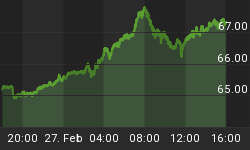My neighbor's dog Spot is well trained. Just the other day I bumped into him in the front yard. I had a cookie in my hand. Spot wanted the cookie. He proceeded to 'roll over' to show his willingness to perform a trick for the treat. Works for that dog virtually every time - call me a sucker if you will. I've seen it happen too many times. The reward of food seems to reinforce the behavior. This got me thinking? I wondered to myself, was this affectionate display instinctive or learned? I settled on the latter because my neighbor always tells me how well trained his dog is. Somehow, that rational is never mentioned when the same dog has a biodegradable "accident" on my front lawn. While this behavior produces a scolding and is never rewarded, it still happens from time to time. It's one of those things that most people accept as nature simply taking its course. No matter the reason, Spot had come to associate the carnal thought of food/nourishment with rolling over. Probably a good thing on the noise front he didn't inadvertently learn to associate 'barking' with the same.
Isn't it funny how the most seemingly arcane things can remind you of something else? The 'learned response' of the dog, the cookie and the trick made something twig in my mind, namely the "flight to quality" trade in financial markets. I view both actions (quite possibly more aptly described as reactions) as being formed by habit. In an historical context this trade was almost exclusively exemplified by a flight of capital into precious metals. Now I ask myself, what's changed? The short answer to this question is that the folks with the power to create fiat money have decided for us that precious metals should not seem so precious after all. One must remember, precious metals serve as a short tight leash for spendthrift governments. Their 'cookie' consists of paper returns (capital gains, interest and such) which they can print and/or withhold at will. When the collective "we" behave in the intended fashion of fiat worship we are rewarded with the same. To date, adherence to this virtue has produced more "Hail Mary" rallies in our equity markets in the past six months than I've ever heard in a lifetime from a devout Catholic. The result is some markets that do not fall as they should while others cannot rise when they want and need to. This is empirically evidenced and explained by diminished volumes and volatility. Participants simply stop playing games that do not operate as they logically should.
So, you might rightfully ask, just how did the powers that be manage to wean us off our precious metals dependency? Quite simple, they trained us like lap dogs. Every time the collective "we" buy too much of the stuff, they hammer the price into submission by selling increasing amounts at lower and lower prices. The beauty for the price riggers is that they do not even have to possess very much of the physical product they are selling. They simply sell fiat proxies for the underlying on exchanges like the COMEX. This enables the riggers to lever their increasingly diminished precious stocks of metal. Sometimes they even warn us all very publicly that they might 'consider' selling vast amounts of physical at a future date (ostensibly to make any inquisitor think twice). There is no other valuable commodity on the planet whose beneficial owners do not try to maximize its value when selling. Can anyone imagine GM publicly announcing to the market that they might have an extra 5 million cars to sell next year? Do you think that would help them maximize the prices paid/received for cars today? Ultimately, when people look at their mounting paper losses it serves as gentle reminder that fiat instruments (like bonds) are a much safer bet. If/when the supply of physical metal exhausts itself; the bond financing schemes we are so dependent on will end abruptly.
If you are with me so far, perhaps you are now asking yourself why this is important and where does it all end? I'll try to deal with these questions one at a time. Besides the 'cold turkey' pain associated with the above mentioned exhaustion event, this is important because the "collective we" are being systematically relieved of our historic stores of value. They are being had for highly encumbered paper assets which are issued at will. It has required the complicity of the Federal Reserve to maintain interest rates at larcenous levels. This has particularly punished the elderly and retired who live on fixed incomes through reduced living standards. It is important because rigging of financial markets in general has lead to the creation of bottlenecks and inflation in our economy. This is particularly important because its perpetuation has required mortgaging and re-mortgaging the futures of our children and grandchildren. It is also very important because it is quite simply fraudulent, unethical and wrong (even if it is financially rewarding for the perpetrators). Once upon a time, I'd like to believe that alone would have been a good enough reason to stop. Times have changed indeed.
That leads us to the most pressing question, where is all this going to end? Let me start by saying most unethical pursuits do not have happy endings. This one is likely no different. Whatever that 'end' is, it might even be brought upon us all quite by accident. For the longest time now, it appears to me that financial markets have been defying the laws of nature. To cite an appropriate but old cliché, it's generally not nice to fool Mother Nature. As with my neighbor's dog Spot, nature will likely have its way with us all in the end. Where I come from that can only mean a large smelly mess on the front lawn. My question to you dear reader, who's going to clean it up?















